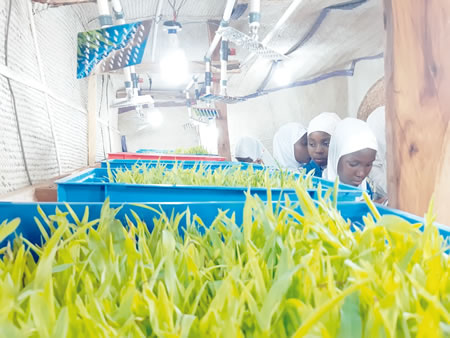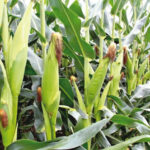NO doubt, African countries are still struggling to feed their citizens amidst growing population coupled with uncertainties in food production.
This development has led to continued dependence on imported processed food into the continent, which has consequences on the continent’s economy.
Unavailability of improved climate smart seeds, lack of technology and shortage of other farm inputs have been linked to poor yield which has set the continent as dependant on the West for food which it can produce.
Majority of African farmers have abandoned their farms as a result of frustration, while some smallholder farmers have resorted to subsistence farming to cater for their households.
This development has also left most manufacturing companies in comatose while those operational are operating below installed capacities.
The attainment of self-sufficiency in food production by most of the developed economies is directly related to technology adoption which has over the years served as the driving force for massive food production for consumption, processing and exportation.
Recently, Professor Garba Sharubutu, Executive Secretary, Agricultural Research Council of Nigeria (ARCN) said investment in agricultural research and technology by African governments will enable the continent to feed itself as its population surges.
Professor Sharubutu maintained that Africa’s agricultural landscape is one of the immense untapped potentials of the continent, adding that the importance of technology cannot be overstated.
Nigeria, for example has 84 million hectares of land, favourable climate, resilient youth population and enough water bodies that can enable farmers to do all-year round planting.
But the present reality shows that the land, water and other natural resources are largely underutilised, as the country continues to import foods it can produce in large quantity.
According to the professor, the AATF has been in the forefront of driving change in agricultural research and technology dissemination.
AATF through collaborations with governments and private sectors has facilitated the development and deployment of innovative solutions to address some of the most pressing challenges faced by farmers in Africa.
“Without technology, the quest to achieve food security in Africa will continue to be a dream. Hoe and cutlass cannot produce food to feed the growing population.
“Africa needs investment in the food system especially in the area of seed technology, mechanisation and policies to ensure sustainability,” he said.
Dr Goodluck Jonathan, Goodwill Ambassador of the African Agriculture Technology Foundation (AATF), said inadequate integration of technologies in the agricultural sector in Africa has contributed to low yields and increased post-harvest losses which in some food items such as fruits and vegetable are as high as 40 percent.
The Nigeria’s former president said the use of technologies has increased productivity in many countries of the world. He said with technology, smallholder farmers are guaranteed of quality harvest and increased yield.
Yield increase is a result of the protection of the crop from insect damage and planting of quality seeds which are all technologically driven.
Talking about insect damage, African farmers are major victims because their crops on the field are vulnerable to pest and insect attack due to lack of protection gene.
Meanwhile scientists in Africa with the support of the AATF and other partners have developed some transgenic crops which have the capability to withstand drought, resist insect and pest and, at the same time, increase the yield.
AATF, through its project, Agri-Drive, has also deployed technologies to farmers with the aim of reducing drudgery, increase yield per hectare, create wealth for the farmers and increase the country’s Gross Domestic Product (GDP).
President of All Farmers Association of Nigeria (AFAN), Kabiru Ibrahim, noted recently that Nigeria’s quest to achieve food security can only be expedited through the adoption of modern technology, such as biotechnology.
With the high performance recorded with the already approved Genetically Modified (GM), the future of the country’s agriculture looks great with the adoption of biotechnology.
The GM technology has proven to be more resilient in addressing food shortage in Africa. From drought tolerant to insect resistant, GM crops has shown that food security in Africa is possible.
Nigeria’s Minister of Innovation, Science and Technology, Chief Uche Nnaji, said existing technologies such as genetic modification, new methods of improving soil fertility and other emerging technologies can address concerns about food security.
Corroborating this, the DirectorGeneral and CEO of Sheda Science and Technology Complex, Professor Paul Onyenekwu said biotechnology has proven to be a catalyst for ground-breaking discoveries, revolutionising the way people approach healthcare, agriculture and environment.
Agricultural biotechnology has proven to be the most dependable solution to mitigate climate change through the use of climate smart crops, energy efficient farming, and reduce synthetic fertiliser usage and carbon sequestration.
The only way farmers can be encouraged to return to their farms is when farming is made attractive through the deployment of technologies. Farmers who plant expect that during harvest, they will make profit.
The condition for youths to take up agriculture as a career is when farming will be presented to them as business and not as developmental programme. A youth expects that after harvesting his crop, he will be able to pay his bills and cater for his family.
Dr Rose Gidado, the Director, Agriculture Biotechnology, National Biotechnology Development Agency (NABDA), said biotechnology is meant to improve the life of farmers through getting high yields from the crops they planted.
She said the challenges of climate change, insect infestation and drought required that African scientists think outside the box to develop crops that will address these challenges.
“African governments need to wake up, strengthen policies that will allow seamless deployment of agriculture biotechnology as a way of securing the future of the continent.
Also, there should be massive investment in research to come up with more technologies that will continue addressing the dynamic issues affecting food production, such as pest and disease infestation, poor yield and others.
It is also pertinent to harmonise biosafety and biotechnology framework in Africa. In doing so, countries in the continent can share technology breakthrough without encountering hitches,” she said.
There should also be massive education for farmers and policymakers in Africa on the benefits of technology deployment, this will pave way for hitch-free deployment of the technology and wide acceptance.
READ ALSO FROM NIGERIAN TRIBUNE






